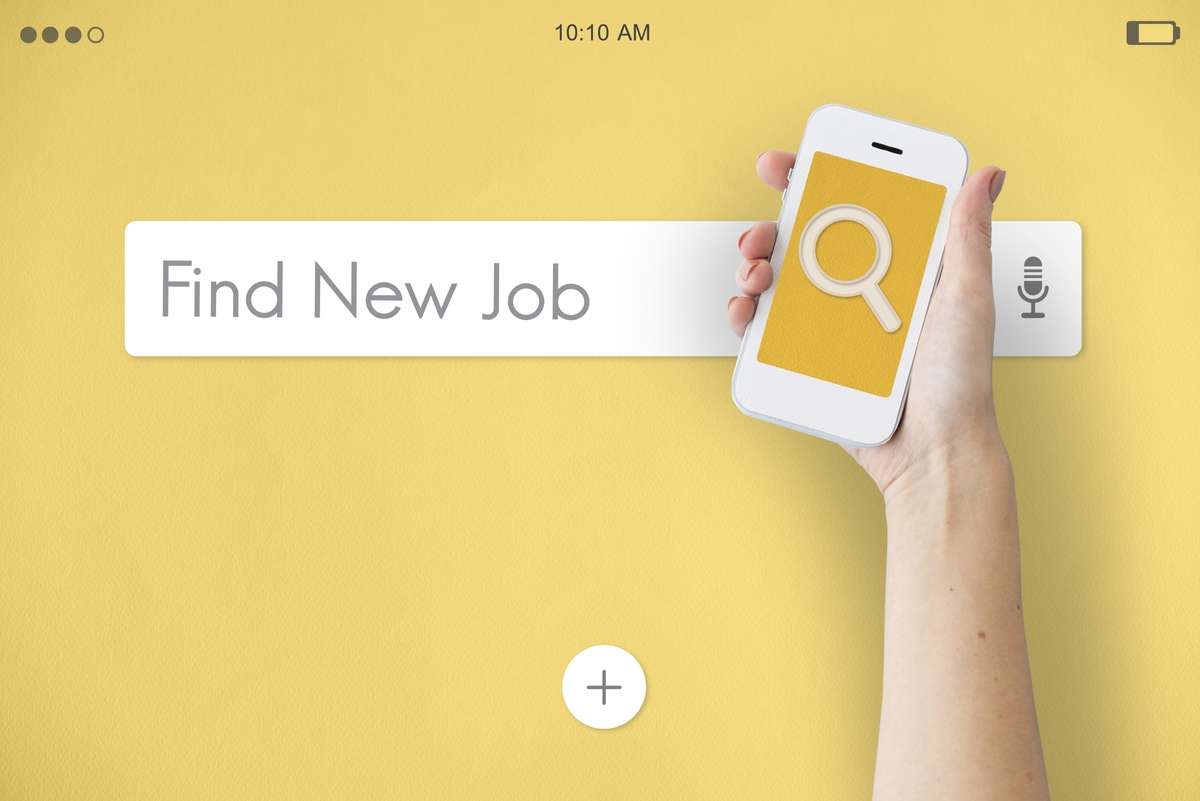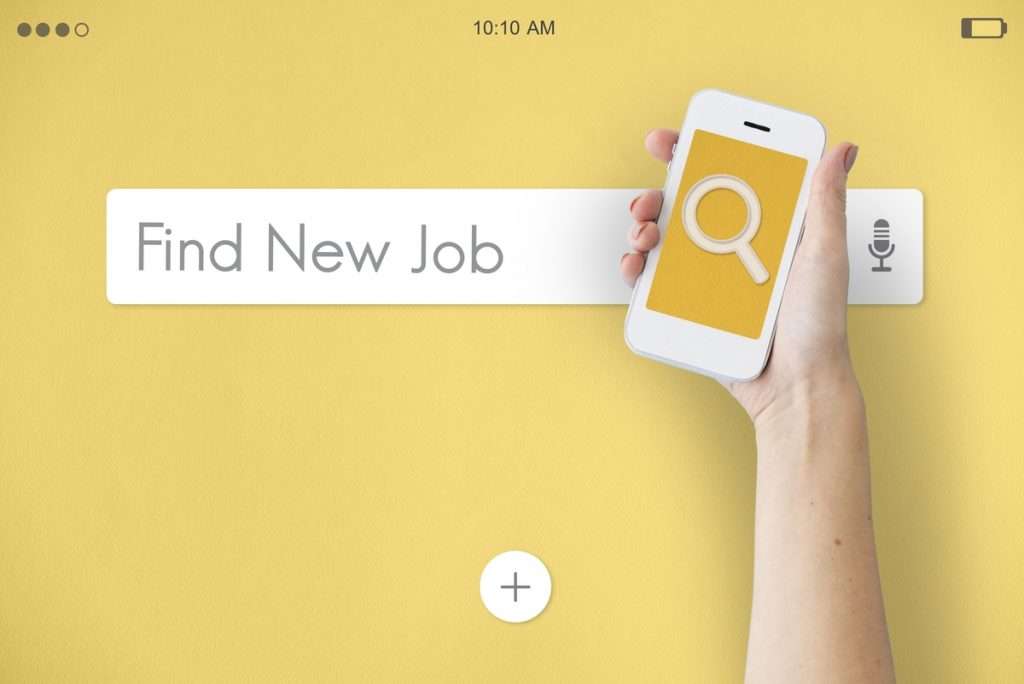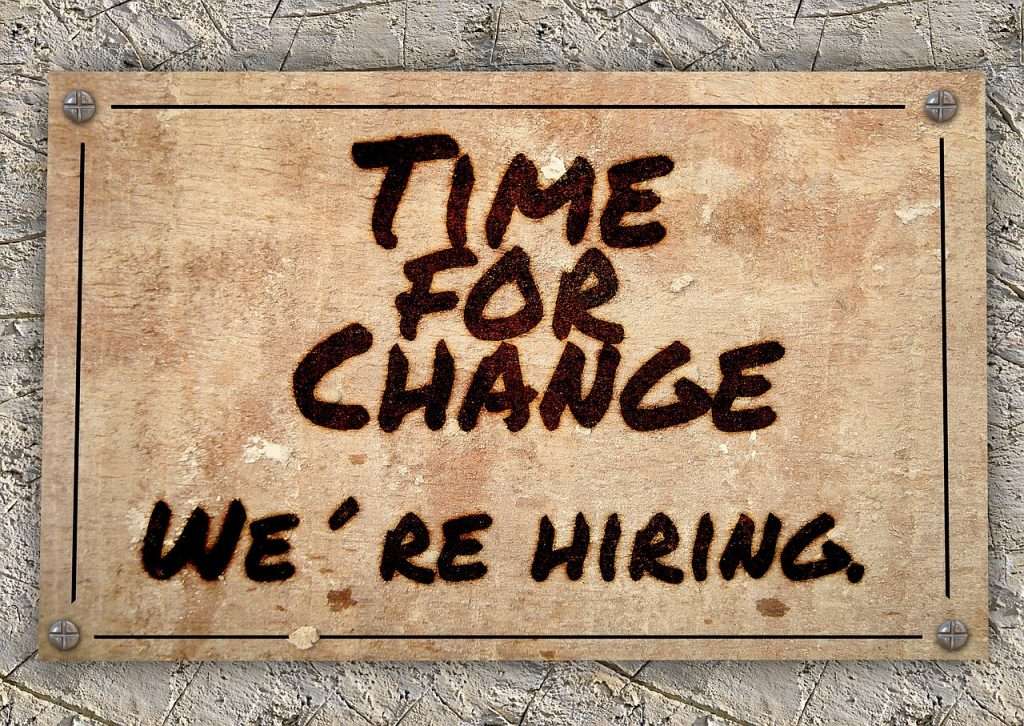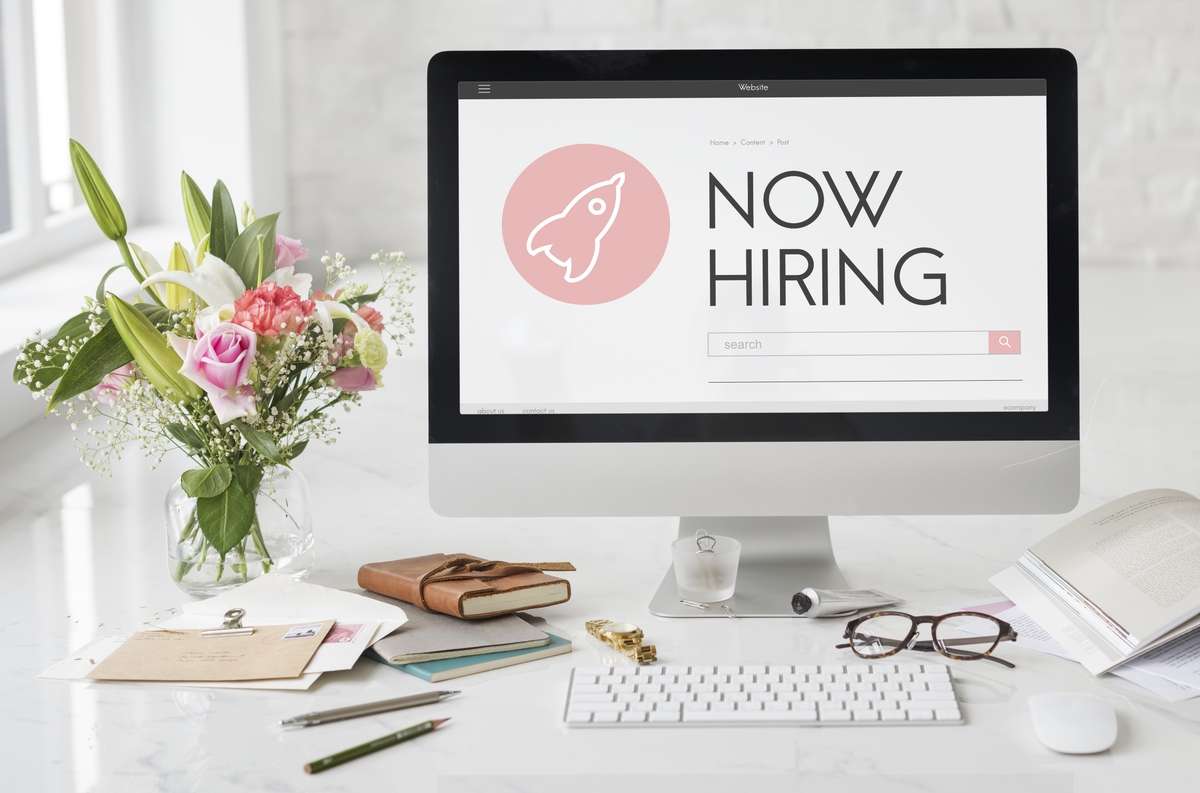A resume one of the most important parts of the job hunt and so needs to be regularly updated to help you land the best jobs available.
Continue readingWays in Which a Recruiter Can Help Your Job Search
The job search can be quite scary, but you don’t need to worry because you have an ally out there – recruiters!
Continue readingHow Can Job Seekers Make Themselves More Attractive to Recruiters?
In this ever-changing market job seekers have to work twice as hard to grab the attention of recruiters and beat out the competition.
Continue readingHow to Attract More Applicants to Your Cause
As the economy recovers, the demand for recruitment has also become more urgent and employers need to act now.
Continue readingJob Hunt Insights: What Candidates are Looking For During the Job Search
Recruiters need to consider that candidates are now spoilt for choice when they go on a job hunt. Here are some key factors to keep in mind.
Continue readingHow Remote Work Has Brought in a New Approach to Recruitment
How Remote Work Has Brought in a New Approach to Recruitment

“Creativity is thinking up new things. Innovation is doing new thing.” – Theodore Levitt, German-American Economist
As the wise Mandril from the Lion King, Rafiki, told Simba, “Oh yes, the past can hurt. But you can either run from it or learn from it.” These are words of wisdom that perfectly illustrate the point of view that many companies had to adopt since 2019 to deal with the changes they were presented with. Could you imagine telling a hiring manager before 2019 that they would have to suddenly transition to remote work with only a few days of notice?
This was the boon or bane, depending on where you stand, that the pandemic brought our way. Ever since the Covid-19 outbreak in early 2020, many companies have come to realize the potential and possibilities that remote working models could provide. It also showed that they aren’t locked into that traditional 9-to-5 work model. What’s more is that the hybrid and remote working models aren’t the end of the line in terms of innovative, adaptive work models.
There is a third option to consider – an open talent model or flexible work model. In this article, we will highlight some of the trends surrounding the open talent model, why and when to apply it, and give you an outline of a few things worth considering as a hiring manager. In essence, we will see how these factors of the remote and open talent model jive with recruitment as a concept.
What Is an Open Talent Model?
The open talent model is a rather broad term that is prescribed to a wide range of work modes from freelancing to on-site work to globally distributed contractors. However, there is one defining feature to it all, which is project-based or temporary positions. If executed right, this way of working can help organizations access key skill sets while still maintaining a certain degree of flexibility, hence the name.
The pandemic acted as a catalyst in normalizing the remote work model and the open talent work model.

Why You Might Want to Use an Open Talent Model
It is worth noting that just like the remote work model before the onset of the pandemic, companies have been slow or hesitant to adopt it. That’s not to say that there wasn’t a market for this working model before Covid-19, but it was slow-rising at best.
Again, much like the remote work model, there seems to be a normalization of the work model that seems to be taking hold much more aggressively. It’s almost as if the pandemic was a catalyst of sorts. Now, as to the different reasons, it’s worth considering, the three main ones are immediate and on the surface of it. The first one is the flexibility that we mentioned before. It allows organizations to scale recruitment and staffing as needed (up or down), at a moment’s notice.
The second reason is that it allows your company to outsource small tasks, which would be justified if it was full-time hires. Similarly, it is better than traditional temporary staffing where the overhead requirements would stifle the project or face budgetary restrictions. Lastly, an open talent model gives you access to a diverse skill set that goes beyond traditional recruitment pipelines, temporary or permanent.
“If you want something new, you have to stop doing something old.” – Peter F. Drucker
When to Use the Open Talent Model
There are generally four separate instances where you might want to consider deploying the open talent model. The first one is when you have the talent inside your organization, but redeploying them to another role or task will be more capital and time-intensive than necessary.
You might also want to consider this model if hiring outsiders turns out to be less expensive than hiring someone full-time for the internal team or even paying overtime to existing employees. You should consider using it when highly specialized skills are needed but aren’t readily available within the organization. It is also worth doing if you want good returns on your solutions.
Now the first three scenarios are considered as a need for talent that is being addressed by the process of extraordinary recruitment such as this. The last reason, however, goes a little beyond that and shines a light on a certain point. That is to say, in many contexts, outside hires can provide innovative solutions or approaches to issues as opposed to the existing talent within the company. It’s not to say that employees you have are not capable, in fact, quite the opposite. They may be highly capable, but the issue lies in the fact that they might be too close to the problem. Outsiders can offer you innovative solutions due to different perspectives and the fact that they aren’t necessarily bogged down too much by the constraints of the business parameters.

As a manager you need to consider how much firm-specific knowledge is needed for the role before turning to the open talent work model.
What a Manager Should Consider
Before hiring based on this model, as the hiring manager, you need to ask yourself a few things. The first, most obvious thing is the level of firm-specific knowledge that is needed to fulfill that role or project. While freelancers can offer valuable insights they need to have a certain level of insight into company operations to integrate the solution flawlessly.
Then of course there is the question of whether the project or task is recurring in nature. If it is, then it would be more economical to make a permanent hire. Keeping that in mind, you also need to consider the fact that if the repeated task or project requires very little business-specific knowledge, you could perhaps make your hires via an open talent model.
What This Means for Recruitment and the Big Picture
Before we get into the bigger picture, let’s discuss expectations. As a hiring manager who might be used to leveraging an army of temps from staffing agencies, perhaps you would expect to shell out a big premium. On the other hand, if you were one who has outsourced work to low-cost areas may expect cost-saving to be the result.
We would urge hiring managers to keep in mind that the more you move towards open talent work models, the higher the competition from similar firms in the industry. After all, what defines any and every recruitment process is the hunt for the best talent in the market – this means competition is a near certainty. This could mean cost saved or premiums paid, it’s hard to say. For the most part, you can only judge that on a case-by-case or need basis.
So, what does this mean for recruitment? Quite simply – democracy. In this globalized online economy with such a level of competition, we think that open talent will help democratize access to opportunities. This could have the ripple effect of providing recruitment opportunities in local or regional places where they are scarce.
One thing for certain is that the more practice you gain with the remote work model, the better prepared your company will be to take on the open talent model. At the end of the day, whatever work model you choose to stick to, they all can deliver relevant and useful results, but they require laser-focused management.
Recent Posts
Off-Page SEO: What You Need to Know
On-Page SEO: A Beginner’s Guide to Optimization in 2022
Social Media Trends Business Should be Ready to Embrace in 2022
Why Recruiters Should Invest in Marketing Automation
How Recruitment Marketers Can Use Data to Boost Success
7 Tricks to Get Recruiters to Notice You
How to Recruit and Retain Flexible Workers
How to Help Employees Manage the Mental Stress of Hybrid Burnout
Why On-Demand Talent is the Way Forward
Top 7 Signs Your Resume Needs Updating
What Does Your Recruitment Process Say About Your Company?
Ways in Which a Recruiter Can Help Your Job Search
How Can Job Seekers Make Themselves More Attractive to Recruiters?
Why Has Recruitment Become More Challenging Recently?
Revisiting Your Passive Candidates Recruitment Strategy
How to Improve Your Email Marketing Campaign as a Recruiter
How to Attract More Applicants to Your Cause
The Guide to a More Inclusive Hiring Policy in 2022
AI in Talent Acquisition: What It Means For the Industry
The Impact of the Metaverse on Modern Day Talent Acquisitions
Job Hunt Insights: What Candidates are Looking For During the Job Search
Writing the Perfect Job Description to Attract Top Talent
An In-Depth Look at the RPO Industry
Why Talent Acquisition Needs People
How to Reorient Your Talent Acquisition Teams for Success
How the HR and RPO Service Provider Can Build a Strong Working Relationship
The RPO Marketplace: Insights for Growth and Branding in 2022
Why Is There a Talent Shortage and What Can You Do?
RPO Industry: Top 9 Facts You Need To Know
RPO Performance: How to Measure and Better Your Business Tactics
Writing the Perfect Job Description to Attract Top Talent
In today’s highly competitive job market you need every advantage you can get when gunning for top talent. A well-crafted job description can do just that. Check it out!
Continue readingHigh-Volume Recruitment Problems Only RPO Partners Know About
When it comes to high-volume recruitment even pros face hurdles. Average hiring operations are tough enough, now imagine it on a large scale! In this blog we talk about some of the core issues that even RPO experts face with high-volume recruitment as a process.
Continue readingHow an E-Commerce Business Can Benefit from RPO Services
How an E-Commerce Business Can Benefit from RPO Services

“Every moment is a fresh beginning. ” – T.S. Elliot, Poet
The onset of the Covid-19 pandemic was one of the most unfortunate misfortunes to befall planet Earth in recent times. The globally active virus forces billions of people all over the world to retreat indoors and with that turn to the virtual world to cope. Over the course of the last two years, the e-commerce industry saw a massive influx of demand. Companies like Amazon especially saw masses of customers filling up their delivery network orders. This high demand forced the company to significantly ramp up its operations. Amazon did so by hiring more workers, filling positions, and bolstering its network.
Now, you may be wondering what any of this has to do with RPO (Recruitment Process Outsourcing). The answer to that is quite simple. In the wake of such extreme cases, RPO solutions offer e-commerce companies a strategic and consultative advantage. Given how things are shaping up with wave after wave of the virus making it to shore every year, one has to assume that the demand for stay-in-place orders will grow. At the same time the demand for businesses that operate in the e-commerce industry also grows. In this article, we explore a few key ways in which e-commerce businesses can benefit from RPO services. We will also look at how that can lead to potential growth.
RPO Enables E-Commerce Businesses to Adapt Fast
As mentioned before, in this current scenario, there is a sense of urgency that has taken over the world of e-commerce. Having said that, one of the biggest boons of an RPO, is the ability to address said urgent hiring situations.
Even in the face of a global pandemic, RPO providers have the ability to ramp up hiring initiatives at a moment’s notice! They do this by consulting with the company’s in-house talent acquisition leadership. This gives them a sense of the direction in which the team is heading. Once basic parameters are established, the RPO provider quickly pulls together an effective hiring strategy. Regardless of the methodology that RPOs employ in their quest, the key takeaway here is that they are able to scale up the hiring function while keeping your day-to-day business operations intact.
RPOs make use of a proper line of communication to ensure that both employer and employee are a good fit for eachother.

Better Communication = Better Hiring Strategy
Communication is another vehicle that RPOs can use to fill a large volume of positions in an e-commerce business. They make sure that there is good communication at all stages of the process. This ensures that the candidate experience is a positive one. This automatically boosts your brand value as an employer.
At the end of the day, candidates will have concerns about their own safety, as they should. It is your responsibility to help them navigate these troubling times. It is also the RPOs job to help you help them. They can do this by possibly elaborating the safety measures your e-commerce business takes, like regular testing, workplace safety precautions, and other preventative steps.
Parallelly, the recruiter will ask the candidate if they have been travelling anywhere in recent months, ask them to provide test results to ensure everyone else’s safety, and so on. This will ensure that both parties are a good fit for each other. In essence, the RPO partner acts as a bridge between the two.
“The only strategy that is guaranteed to fail is not taking risk.“ – Mark Zuckerberg, Facebook CEO
Parallelly Tackling Short-Term and Long-Term Needs of the Business
When you bring in an RPO partner to help with the hiring of new talent, they become an extension of your current talent acquisition team. This allows them to tap into existing strategies and customize them in a way that will immediately meet your short-term goals. On the other hand, like an e-commerce business, or any business really, you need to think of your long-term goals as well.
Well not to worry, RPOs can help with that too. An RPO account manager will continuously be in talks with the leadership, review the information and data every other day and make adjustments to suit your e-commerce business needs accordingly. This wide margin of dexterity and flexibility that RPOs provide is invaluable as an e-commerce company trying to keep up with the demand that just seems to be growing day by day.
Recent Posts
Off-Page SEO: What You Need to Know
On-Page SEO: A Beginner’s Guide to Optimization in 2022
Social Media Trends Business Should be Ready to Embrace in 2022
Why Recruiters Should Invest in Marketing Automation
How Recruitment Marketers Can Use Data to Boost Success
7 Tricks to Get Recruiters to Notice You
How to Recruit and Retain Flexible Workers
How to Help Employees Manage the Mental Stress of Hybrid Burnout
Why On-Demand Talent is the Way Forward
Top 7 Signs Your Resume Needs Updating
What Does Your Recruitment Process Say About Your Company?
Ways in Which a Recruiter Can Help Your Job Search
How Can Job Seekers Make Themselves More Attractive to Recruiters?
Why Has Recruitment Become More Challenging Recently?
Revisiting Your Passive Candidates Recruitment Strategy
How to Improve Your Email Marketing Campaign as a Recruiter
How to Attract More Applicants to Your Cause
The Guide to a More Inclusive Hiring Policy in 2022
AI in Talent Acquisition: What It Means For the Industry
The Impact of the Metaverse on Modern Day Talent Acquisitions
Job Hunt Insights: What Candidates are Looking For During the Job Search
How Remote Work Has Brought in a New Approach to Recruitment
Writing the Perfect Job Description to Attract Top Talent
An In-Depth Look at the RPO Industry
Why Talent Acquisition Needs People
How to Reorient Your Talent Acquisition Teams for Success
How the HR and RPO Service Provider Can Build a Strong Working Relationship
The RPO Marketplace: Insights for Growth and Branding in 2022
Why Is There a Talent Shortage and What Can You Do?
RPO Industry: Top 9 Facts You Need To Know
7 Red Flags to Keep an Eye on Before Signing the Employment Contract
7 Red Flags to Keep an Eye on Before Signing the Employment Contract

“The first thing anyone can do, about any issue, is get informed.” – Adora Svitak, American Writer
When companies recruit applicants, it’s only natural that they do a thorough background check on their future employees. So, when that is the case, why shouldn’t you also do that? Why should you not be sure that this is the workplace and company for you? For anyone sitting on the other side of the table, this article is for you! In this blog, we will be going over some of the major things you should have on a checklist before signing an employment contract. Our years of experience as an RPO agency in Canada have taught us exactly what to look for.
In the following list, we talk about things that you want to go through relatively well before signing the next few years away through the employment contract. However, most of these steps or points should and could be covered well before you even have the first interview. As they say, you can never be too prepared, especially when it comes to your career.
#1 Look Through the Company Website
While this may sound like an obvious point, you may be surprised how rarely candidates go through the company websites. Looking through their website gives you an immediate idea of what they do, who they are, and everything in between. It also helps you analyze if the company follows the current trends in the market. You need to make sure you are joining a company that knows what the people want, how to reach them, and ultimately puts value on innovation, customers, and employees.
If you find gaps in what you are looking for, these would be great points to bring up during the interview! Employers will be impressed as they want employees who can think for themselves, recognize the market trends and ultimately help the company get there.
#2 Have a Look at the Company’s Social Media Platforms
Social media – a great boon or bane, especially when it comes to business. Nowadays, there is virtually almost no company that does not have at least some presence on social media platforms. For one, it is a great place to get the attention of the public eye. Doing a deep dive into their social platforms will give you an idea of where their strengths are. It will tell you how they, as a business, navigate this increasingly digitized world we live in.
If they are absent from the online space or have a sparse following across their platforms, this could be a major red flag. This is something you might want to bring up during the interview- the answer to which will help you figure out if you should sign that employment contract.
Before singing away your future with an employment contract, make sure that the company itself has a future.

#3 Look into Their Products and Services
Regardless of your position in the company, it always helps to have a holistic understanding of the company. Do a deep dive into the company’s business model. Have a look at their products and/or services and see if there is an actual demand for them in the market. Now, this may sound like a complex undertaking at first, but once you fully understand the company and what they do, then it does get a little easier.
#4 What Does the Future of the Company Look Like?
Carrying on from the previous point, you need to figure out what the future of the company looks like. Their products and/or services are deeply rooted in their vision for the future, which should be there on the company website. Look into the competition that they face in the sector, do a SWOT analysis, and see where the company shines and where there is doubt. Knowing the future of the company is important when you are signing away your future with an employment contract.
“I try to be well informed. I don’t know how well I do all the time, but I try nonetheless.“ – Henry Rollins, American Singer.

The company's financial history is a good indicator of whether or not you should sign that employment contract.
#5 What Story do the Company Financials Tell?
At the end of the day, there is no point in joining a company that can’t afford to pay you what you deserve. You need to make sure that before you bind yourself to the business with an employment contract, that they can afford to pay you. Look at their turnover, profits, balance sheets and so on. Depending on the country you are in, these things should be rather easy to find online. It sounds like a lot of work, but this is much more preferable than being stuck in a job that doesn’t pay your bills.
#6 Get in Touch with Employees
People will say what they have to do during the job interview if they want the job or the candidate bad enough. That is why it is always important to find out the information from the inside. The best source is employees of the company. Try to find people who work or have worked for this employer in the past. LinkedIn or Glassdoor are great venues to read reviews, get in touch with people and get down to the truth of what it was like to work for a particular company.
“A well-informed citizenry is the best defense against tyranny.” – Thomas Jefferson, 3rd U.S. President
#7 Find out Who Your Future Boss Might Be
This is probably the most important aspect of your checklist. Your future boss or supervisor is someone who you will work with for the duration of your employment contract. They will set the tone and the pace for you in the workspace. So, it’s important to know their professional background. What has their career path been like? Do they have any ringing endorsements? These things are best found out from people who have worked with him or her in the past.
All of this may seem like a lot of work, but the result will be worth it. Ask yourself this: Would you rather put in some extra effort now or be stuck in an employment contract for the foreseeable future, in a job you don’t like?







































